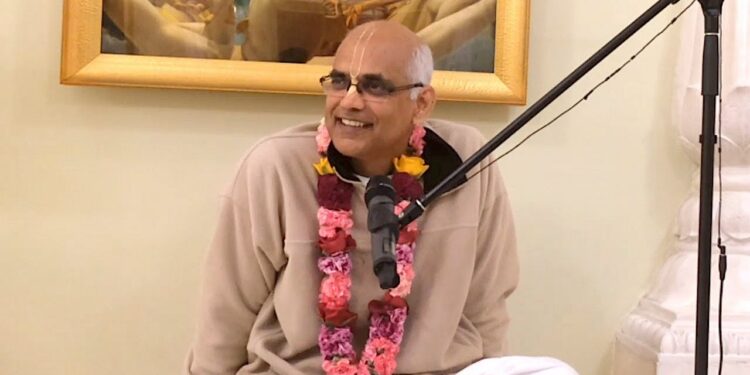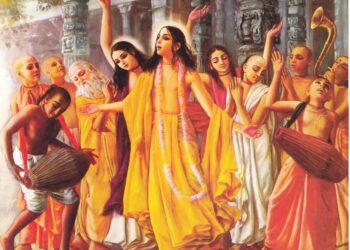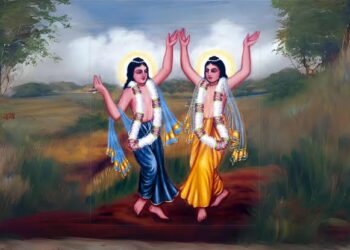TEXT 38
dhūmenāvriyate vahnir
yathādarśo malena ca
yatholbenāvṛto garbhas
tathā tenedam āvṛtam
SYNONYMS
dhūmena—by smoke; āvriyate—is covered; vahniḥ—fire; yathā—just as; ādarśaḥ—mirror; malena—by dust; ca—also; yathā—just as; ulbena—by the womb; āvṛtaḥ—is covered; garbhaḥ—embryo; tathā—so; tena—by that lust; idam—this; āvṛtam—is covered.
TRANSLATION
As fire is covered by smoke, as a mirror is covered by dust, or as the embryo is covered by the womb, the living entity is similarly covered by different degrees of this lust.
PURPORT
There are three degrees of covering of the living entity by which his pure consciousness is obscured. This covering is but lust under different manifestations like smoke in the fire, dust on the mirror, and the womb about the embryo. When lust is compared to smoke, it is understood that the fire of the living spark can be a little perceived. In other words, when the living entity exhibits his Kṛṣṇa consciousness slightly, he may be likened to the fire covered by smoke. Although fire is necessary where there is smoke, there is no overt manifestation of fire in the early stage. This stage is like the beginning of Kṛṣṇa consciousness. The dust on the mirror refers to a cleansing process of the mirror of the mind by so many spiritual methods. The best process is to chant the holy names of the Lord. The embryo covered by the womb is an analogy illustrating a helpless position, for the child in the womb is so helpless that he cannot even move. This stage of living condition can be compared to that of the trees. The trees are also living entities, but they have been put in such a condition of life by such a great exhibition of lust that they are almost void of all consciousness. The covered mirror is compared to the birds and beasts, and the smoke-covered fire is compared to the human being. In the form of a human being, the living entity may revive a little Kṛṣṇa consciousness, and, if he makes further development, the fire of spiritual life can be kindled in the human form of life. By careful handling of the smoke in the fire, fire can be made to blaze. Therefore the human form of life is a chance for the living entity to escape the entanglement of material existence. In the human form of life, one can conquer the enemy, lust, by cultivation of Kṛṣṇa consciousness under able guidance.
TEXT 39
āvṛtaṁ jñānam etena
jñānino nitya-vairiṇā
kāma-rūpeṇa kaunteya
duṣpūreṇānalena ca
SYNONYMS
āvṛtam—covered; jñānam—pure consciousness; etena—by this; jñāninaḥ—of the knower; nitya-vairiṇā—by the eternal enemy; kāma-rūpeṇa—in the form of lust; kaunteya—O son of Kuntī; duṣpūreṇa—never to be satisfied; analena—by the fire; ca—also.
TRANSLATION
Thus the wise living entity’s pure consciousness becomes covered by his eternal enemy in the form of lust, which is never satisfied and which burns like fire.
PURPORT
It is said in the Manu-smṛti that lust cannot be satisfied by any amount of sense enjoyment, just as fire is never extinguished by a constant supply of fuel. In the material world, the center of all activities is sex, and thus this material world is called maithunya-āgāra, or the shackles of sex life. In the ordinary prison house, criminals are kept within bars; similarly, the criminals who are disobedient to the laws of the Lord are shackled by sex life. Advancement of material civilization on the basis of sense gratification means increasing the duration of the material existence of a living entity. Therefore, this lust is the symbol of ignorance by which the living entity is kept within the material world. While one enjoys sense gratification, it may be that there is some feeling of happiness, but actually that so-called feeling of happiness is the ultimate enemy of the sense enjoyer.

















